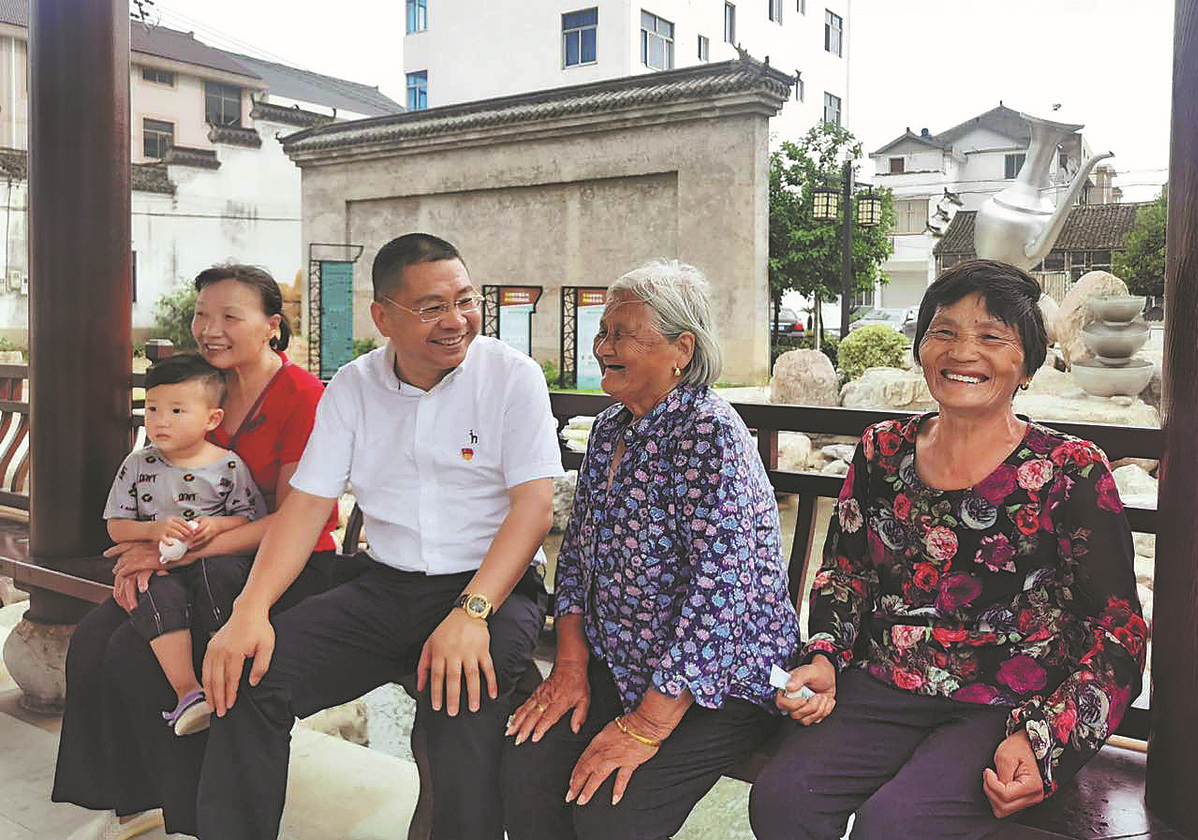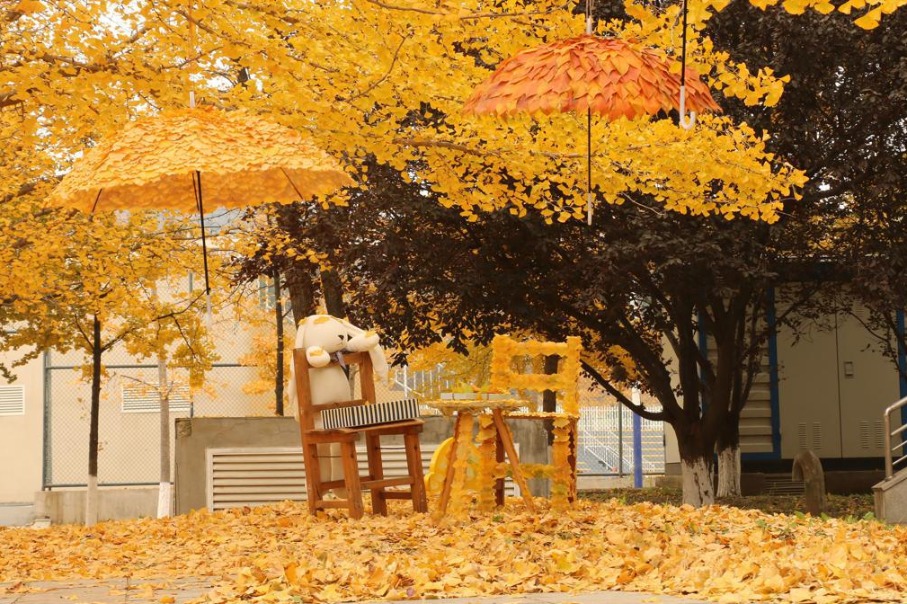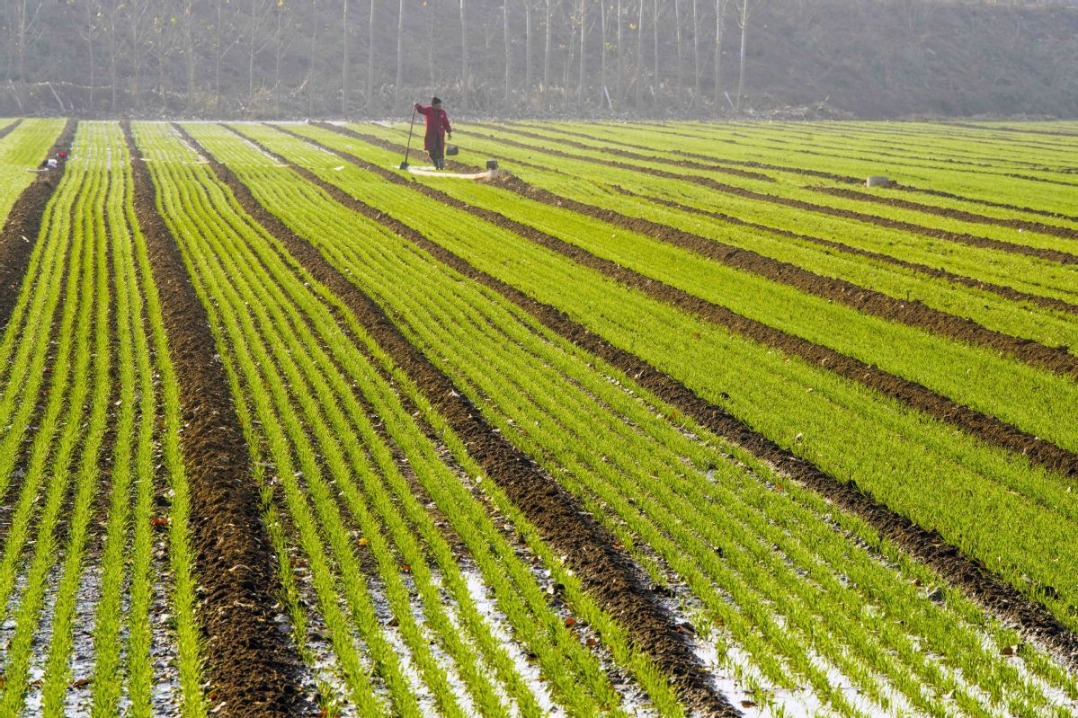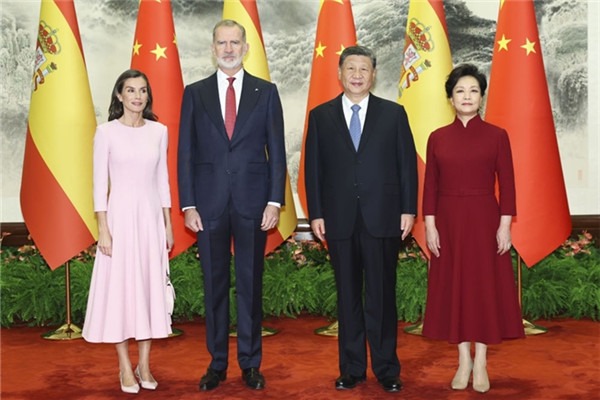Party chief's innovation overhauls rural community
From tech-driven farms to tourism, Cai-lu thrives thanks to vitalization drive


Lu Yangchun, 57, Party secretary of Cailu village in Dongyang, Zhejiang province, has devoted himself to leading the integrated development of the village's agricultural, cultural and tourism industries.
Before assuming the Party secretary role in 2013, he identified himself as an entrepreneur, managing a magnetic materials company.
Due to his limited English skills, Lu relied on translators when international clients visited. When it became clear that they couldn't translate his ideas as quickly or accurately as he needed, he decided to learn English himself.
In 2001, Lu studied English at a foreign language training school belonging to Beijing Foreign Studies University in Beidaihe, Hebei province. "I chose a faraway place because I wanted to dedicate myself to English learning completely," he said. "Otherwise, I might be easily distracted by minor issues at my company."
He finished the first volume of Gateway to English during the three-and-a-half-month study while working in the evenings. Despite the progress, he thought his improvement was insufficient.
In 2004, he spent another three and a half months in California for further English study. This time, he improved enough to communicate with foreign guests independently.
His dedication to self-improvement stood out, earning him a selection to Cailu's young cadres.
Lu's career mirrored the journey of his father, who also transformed from an entrepreneur to the village Party secretary.
Lu inherited his father's ethos of striving for excellence. During his service, he has emphasized sacrificing time, energy and even money for the betterment of the village. Lu spends most of each work day in the village, except for early mornings and evenings when he works at the company.
Lu's work ethic has influenced his colleagues. In one case, the village needed to reclaim land used by an elderly man as a vegetable garden. When the man refused to cooperate, village officials compensated him at their expense.
"I told our members to take some cash with them at all times. After they make compensations, I reimburse them. Ultimately, the money comes from me," said Lu.
In the 1990s, Cailu village adopted an innovative farming method of directly scattering rice seeds over fields for lack of labor. This approach, later named Cailu Experience, revitalized abandoned land and yielded impressive results, earning national attention and recognition.
In recent years, Lu has embraced technological advancements. He spearheaded the establishment of the Smart Cailu Cloud Platform, which digitally manages 1,865 mu (124.4 hectares) of farmland using 5G technology.
Today, the Cailu Experience extends beyond agriculture. Under Lu's leadership, the village has integrated its agricultural, cultural and tourism industries with unique projects such as a horse riding track. "I selected horses from Shandong province and funded the construction of the track," Lu said.
Additionally, the village initiated the Shared Countryside concept, combining farming with the sightseeing industry. It built a one-kilometer cherry blossom avenue to be a tourist hot spot. People from nearby villages book the avenue to host activities.
At night, lights illuminate the fields, creating a charming atmosphere for young visitors who come to sit atop the new scenic viewing platform. According to Lu, they built the platform at a height of 5 meters to leave room for future tour buses.
Lu also plans to introduce a rice paddy coffee project, allowing visitors to order coffee from designated points within the fields.
In 2024, the village received over 28,000 visitors. The collective income reached 11 million yuan ($1.5 million), the operational income surpassed 4.5 million yuan, and the average annual income per villager increased to over 85,000 yuan.
When asked about his unwavering dedication to the village's work, often at a personal cost, Lu answered with simple words, "Like my father, I simply aim to do my best to 'raise more hens' for the villagers."
- Shanghai's Jinshan district reports economic growth
- Building an effective global communication discussed at Hunan forum
- Cleaning staff transform fallen ginkgo leaves into campus art sensation
- Chinese scientists weave tiny polymer capable of towing car
- Hebei to expand transportation projects during 15th Five-Year Plan period (2026-30)
- Nankai University scholar publishes long-lost Latin translation of Tao Te Ching





































